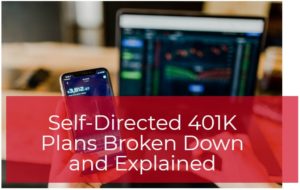
A self-directed 401K lets you invest as you see fit. You can choose your own mutual funds, stocks and bonds rather than sticking to the pre-made funds typically associated with a retirement savings account. You can even invest in more unconventional assets like real estate and commodities if your employer allows it. The types of investments you can choose include:
- Real estate (residential or commercial)
- Tax liens
- Private placements
- Precious metals
- Energy investments
- Equipment leasing
- Foreign currency
Self-Directed 401K Rollovers and Withdrawals
The withdrawal and rollover rules are the same for self-directed 401K plans as traditional 401K plans or IRAs. If you withdraw from a self-directed 401K before the age of 59 1/2, you’ll face a 10% penalty for early withdrawal unless you qualify for an exemption.
If you want to rollover a self-directed 401K to an IRA, you have 60 days to rollover, after which the money you’ve removed from your account becomes a taxable withdrawal. Ask the brokerage that hosts your IRA to help you make a direct, tax-free and penalty-free rollover. You may want to rollover to a self-directed IRA if you like having a high degree of control over your investments.
Self-Directed 401K Prohibited Transaction Rules
If you decide that a self-directed 401K is right for you, you’ll need to know the rules. The IRS prohibits certain transactions in self-directed 401K plans. Should the IRS determine that you’ve made a prohibited transaction, your account will no longer be tax-advantaged and all of your investments would become taxable. This could result in a hefty tax bill, so you want to be sure to abide by the rules.
Any transaction (a sale, lease, exchange, transfer or payment) between the self-directed 401K owner and a disqualified person is against IRS rules. A disqualified person is any person who either provides services to the plan or has a financial interest in the plan. Spouses, parents, grandparents, children, grandchildren and their spouses and daughters and sons in-law are all considered disqualified persons, as are your account beneficiary, your account custodian or administrator and any company in which you directly or indirectly own at least 50% of the voting stock. You’re also a disqualified person. You can’t use property or other investments in your account to benefit yourself nor can you use real estate in your account as collateral for a personal loan.
There are also rules specific to self-directed 401K investments in real estate. You can’t use your contributions to buy a rental property and then enlist your parents to be your tenants. That would be what the IRS calls a prohibited transaction because you’re using your funds to benefit family members, who are disqualified persons.